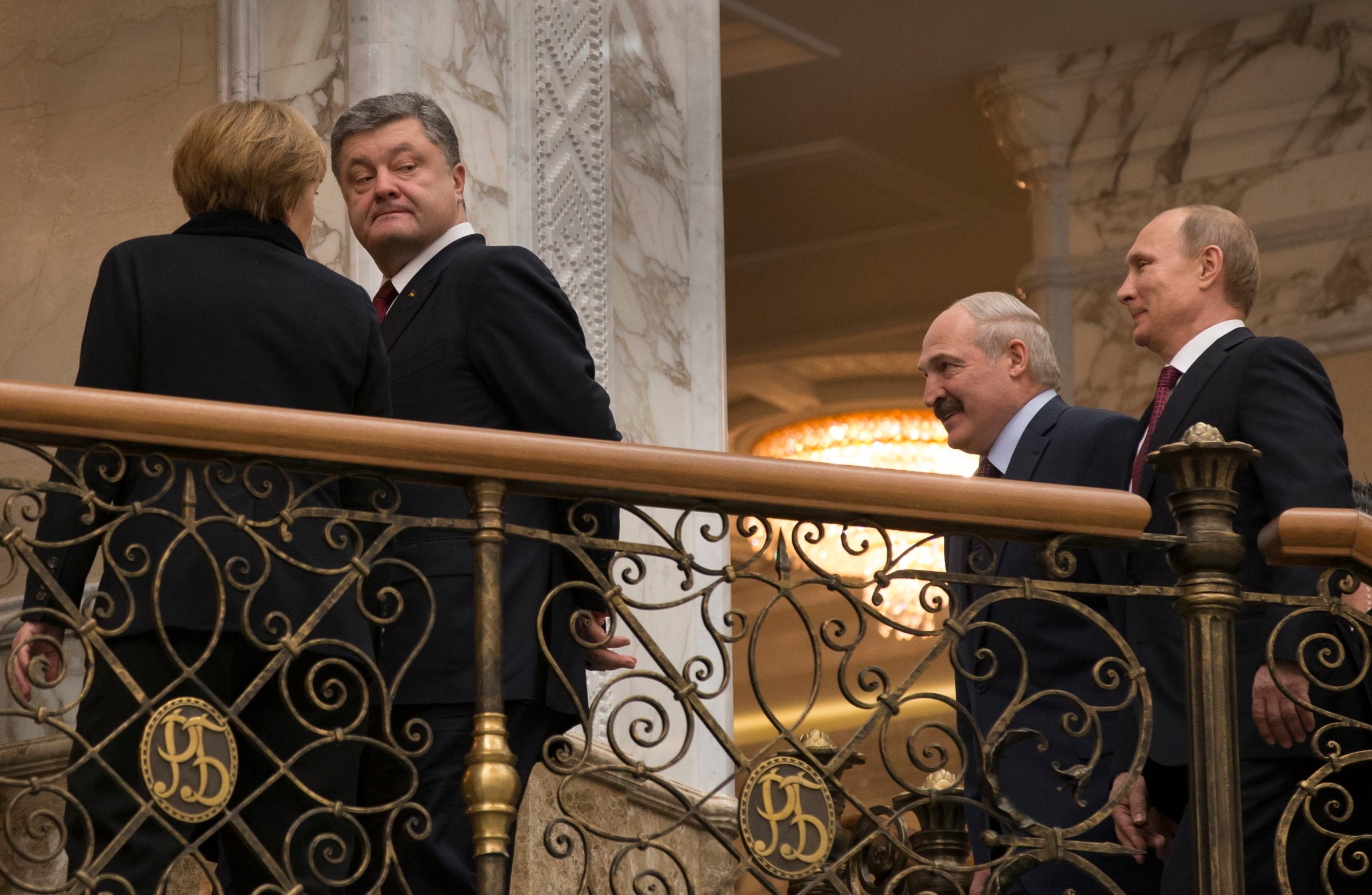
After tense, all-night negotiations on Wednesday, European leaders reached a shaky deal with Russia for a ceasefire in Ukraine. That didn’t stop the violence, and many doubt a ceasefire can hold. Here are the five reasons showing that even if Russia has it bad, Ukraine has it worse:
1. Abysmal economics
The Russian economy nearly entered recession in 2014, with GDP growing just 0.6%. But in Ukraine, Russian aggression led to economic fallout of another magnitude: GDP shrank nearly 10%. Ukraine’s economic performance since the break-up of the Soviet Union demonstrates the cost of living in Russia’s shadow. In 1991, Ukraine and Poland’s economies were roughly the same size; Poland joined Europe, while Ukraine didn’t. By last year, Ukraine’s GDP was one third of Poland’s (and that gap is growing).
2. Shrinking territory
Ukraine’s loss is Russia’s gain. In March, Russia annexed all 10,400 square miles of Crimea, a land area larger than Massachusetts. Ukrainian officials assert that Russia and the separatists it backs control 7% of Ukraine’s terrain, encompassing one-fifth of Ukraine’s population. Donetsk and Luhansk, the areas of concentrated fighting, account for some 15% of Ukraine’s GDP and a third of its industrial output. Ukraine has good reason to be skeptical about the latest ceasefire talks. According to its Foreign Ministry spokesman, since the last ceasefire in September, separatists have seized over 500 square kilometers of new territory—or some eight-and-a-half Manhattans.
3. Pummeled currencies
In 2014, the Russian Ruble was the second-worst performing currency in the world, weakening 46% against the dollar. Ukraine’s Hryvnia finished first, hemorrhaging over half its value over the course of the year. So far in 2015, Ukraine’s currency is picking up right where it left off. After the government announced on February 5th that it would no longer prop up its currency, the Hryvnia fell 50% in 48 hours.
4. Massive displacement
Thanks to a tanking economy, surging sanctions, and growing animosity between the Kremlin and the West, foreigners are fleeing Russia. From January 2014 to January 2015, there was a 31% drop in the number of Germans in Russia, and even bigger drops in Americans (36%), Brits (38%), and Spaniards (41%). Overall, there were 417,000 fewer foreigners in Russia in January 2015 than the year before… but that excludes the people who fled to Russia to escape the war in Ukraine. Since the conflict began, 430,000 Ukrainians, the majority of them ethnic Russians, have sought some form of legal status in Russia. The conflict has killed more than 5,000 people and displaced some 1.5 million.
5. Endemic corruption
Neither society is healthy; a huge percentage of each population smokes (six out of ten Russian males smoke) and life expectancy remains at 70 (Russia) or under (Ukraine). The rot isn’t just physical, however. Transparency International ranks Russia 136th on the Corruption Perceptions index; Ukraine is 142nd. Between 2010 and 2014, officials were stealing an estimated one fifth of Ukraine’s national output each year (according to claims from officials in the general prosecutor’s office). The Ukrainian shadow economy is roughly 50% of GDP—one of the world’s largest percentages.
Read next: China Is the Big Winner in the Conflict Between Russia and the West
More Must-Reads from TIME
- Cybersecurity Experts Are Sounding the Alarm on DOGE
- Meet the 2025 Women of the Year
- The Harsh Truth About Disability Inclusion
- Why Do More Young Adults Have Cancer?
- Colman Domingo Leads With Radical Love
- How to Get Better at Doing Things Alone
- Michelle Zauner Stares Down the Darkness
Contact us at letters@time.com